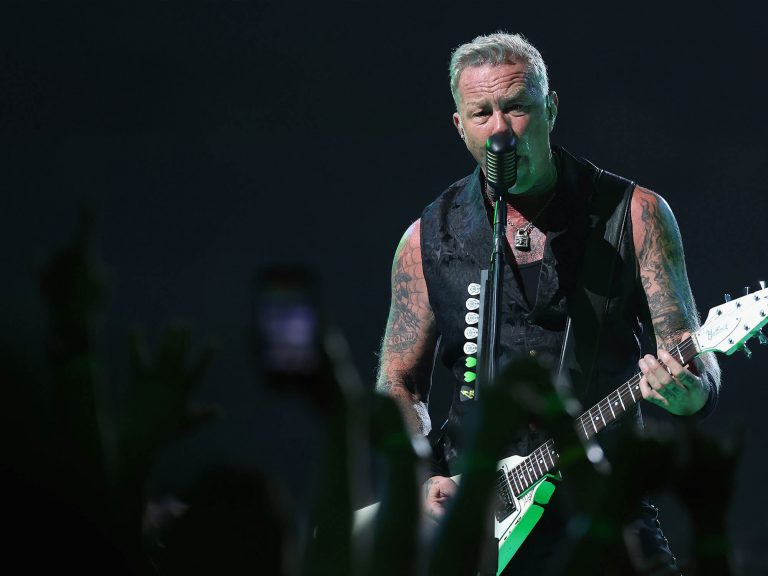James Hetfield, the dynamic frontman of Metallica acclaimed for his commanding vocals, possesses an intrinsic connection with the guitar that transcends his role as a rhythm player within the band. While Kirk Hammett handles the more technically intricate aspects of their sound, Hetfield’s journey into the realm of music began with an unlikely instrument—the piano.
Embarking on this melodic expedition at the tender age of nine, Hetfield spent five years navigating the keys before succumbing to the magnetic allure of the guitar. This pivotal transition marked a turning point, shaping the trajectory of his musical destiny with an unwavering commitment to the six strings.
The genesis of Hetfield’s guitar prowess can be traced to the influences of bands like Aerosmith, serving as the initial catalyst for his foray into the world of rock music. However, a transformative encounter with Black Sabbath redirected his musical compass. Intrigued by their thunderous resonance, Hetfield immersed himself in the quest to replicate their unparalleled loudness, germinating the seeds that would later blossom into the iconic Metallica sound.
Credit for Hetfield’s sonic awakening goes to his older brother, the conduit through which he discovered the trailblazing sounds of the pioneering British group, Black Sabbath. Their music not only captivated Hetfield but also unlocked sonic possibilities he hadn’t fathomed before.
The privilege of inducting Black Sabbath into the Rock and Roll Hall of Fame in 2006 became a reflective moment for Hetfield, rekindling memories of that initial sonic revelation. Describing it as more than mere music, he articulated the experience as a powerful, loud, and heavy sound that resonated deep within his soul.
In a 2015 revelation to Guitar World, Hetfield shed light on the profound impact of Tony Iommi, Black Sabbath’s legendary guitarist, on his musical journey. Iommi’s mastery of riffs and rhythm became a guiding force, inspiring Hetfield to delve into the realms of heaviness and pushing the boundaries of conventional musical expression. While acknowledging admiration for other rhythm virtuosos like Malcolm Young, Rudy Schenker, and Alex Lifeson, Hetfield unequivocally placed Iommi in a league of his own.
Elaborating on Iommi’s unique genius, Hetfield painted a portrait of a quiet maestro. He harkened back to a time when Iommi assumed the frontman role in Black Sabbath, with Ozzy Osbourne relegated to the sidelines. In that era, the riff took precedence over vocals, showcasing Iommi’s versatility in seamlessly transitioning from the darkest minor-key doom riff to an uplifting mode—an artistic finesse that left an indelible mark on Metallica’s sonic landscape.
Recognizing the pivotal role of Iommi in spearheading Black Sabbath and ushering in a new era of rock, Hetfield acknowledged that without such groundbreaking pioneers, bands like Metallica would struggle to thrive. Despite the discernible differences between Metallica and Sabbath, Hetfield remains acutely aware of the debt owed to these musical forefathers who meticulously carved the path for his illustrious career.

